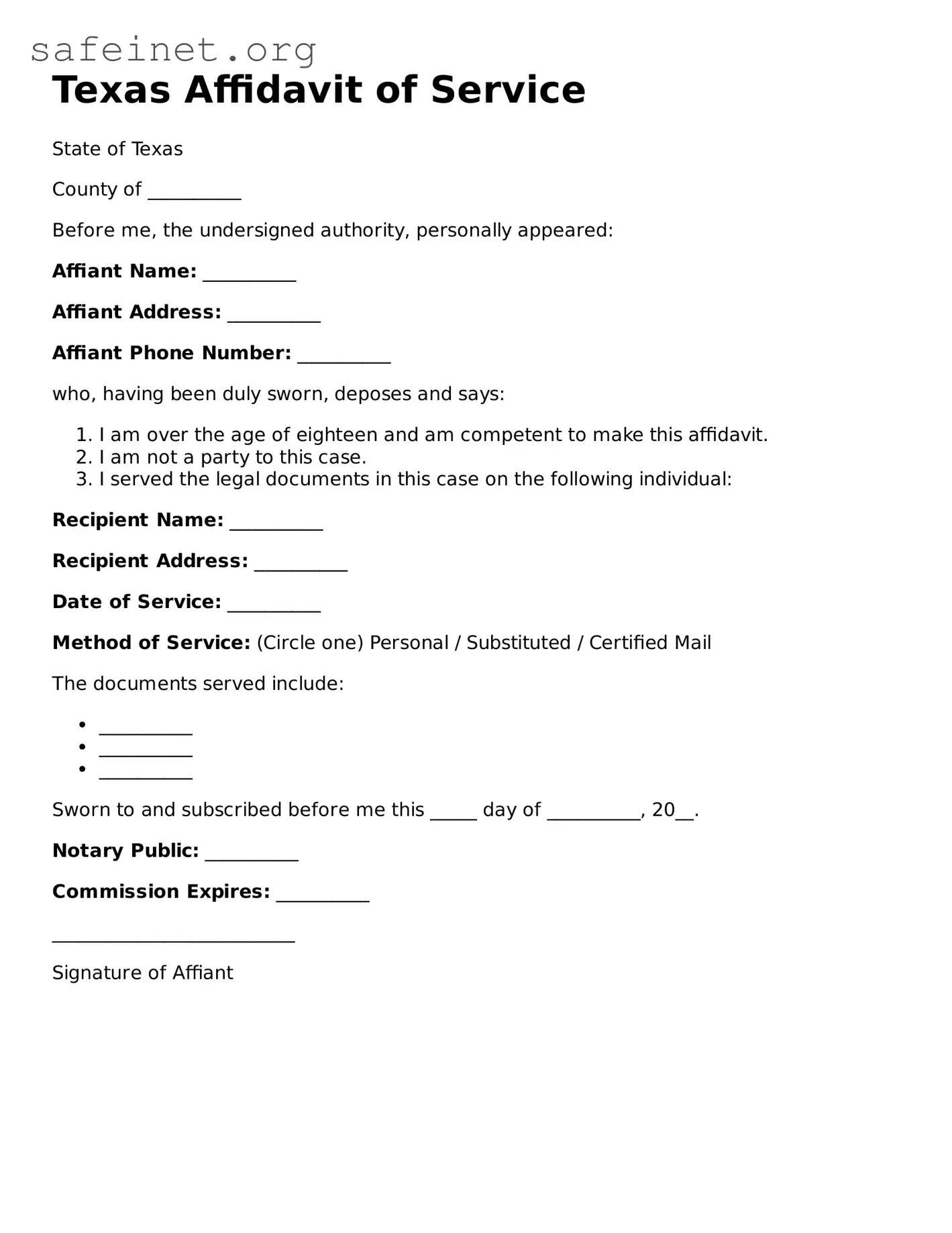Valid Affidavit of Service Template for the State of Texas
The Texas Affidavit of Service form is a legal document that verifies the delivery of legal papers to a designated individual. This form serves as proof that the necessary documents were served in accordance with Texas law. Completing this form accurately is crucial for ensuring that all parties are informed in a timely manner, so click the button below to get started.
